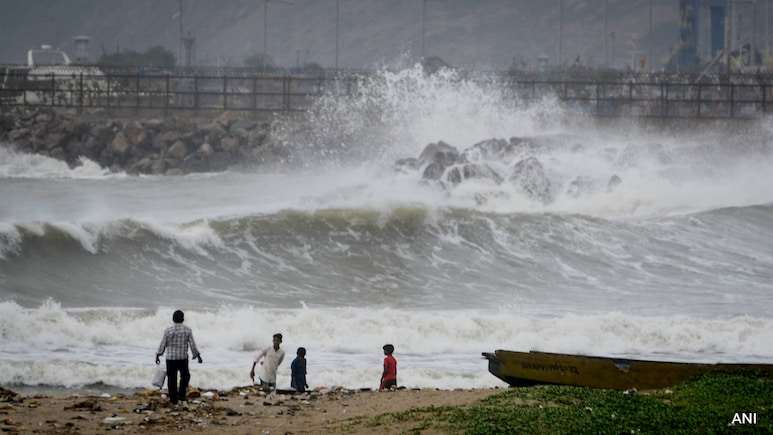
File photo
Andhra Pradesh is on high alert as Cyclone Montha is expected to hit the Kakinada coast by October 28, bringing strong winds and heavy rainfall. The India Meteorological Department (IMD) forecasts winds of 90-100 kmph, with the cyclone's impact likely starting from October 26 in coastal districts.
State Chief Secretary K Vijayanand, in a Saturday teleconference, ordered the immediate setup of control rooms in affected mandals and instructed field staff to be available in villages at all times. Authorities continue to monitor the situation closely.
Cyclone Montha: Do's And Don'ts
Before Cyclone Season
- Inspect your house; fix loose tiles, doors, and windows.
- Remove dead or unstable trees near your home. Secure loose objects like bricks, tin sheets, lumber, garbage cans, and signboards.
- Keep wooden boards ready to cover glass windows if needed.
- Stock hurricane lanterns with kerosene, battery-powered torches, and extra dry cells.
- Demolish unsafe or condemned buildings.
- Keep extra batteries for radios and non-perishable dry food ready for emergencies.
When Indoors During Cyclone
- Switch off electrical mains and gas supply to prevent fires or gas leaks.
- Close doors and windows to protect against strong winds. Evacuate if your house is unsafe, weak, or in a flood-prone area.
- Stay updated on weather forecasts, evacuation notices, and safety instructions via trusted sources like NDTV, the IMD, and local authorities.
- Drink safe water by boiling or purifying it to avoid waterborne diseases.
- Board up windows or use storm shutters; if boards are unavailable, use paper strips on glass to reduce splinter injuries.
- Keep emergency lights, torches, food, and water within reach.
If Outdoors During Cyclone Montha
- Avoid entering damaged buildings until authorities declare them safe.
- Stay clear of broken electric poles, wires, and sharp debris to prevent injuries or electrocution.
- Take shelter in sturdy buildings or designated cyclone shelters to protect yourself from strong winds and flying debris.
During Cyclone Alerts And Evacuation
- Listen to official warnings on radio or trusted news sources. Ignore rumours.
- Leave low-lying areas and head for higher ground or evacuation shelters early to avoid getting stranded.
- Pack essential items, including medicines, food for infants or elderly, and important documents.
- Follow shelter rules and stay until authorities confirm it is safe to leave.
After Cyclone
- Do not return home until authorities declare the area safe.
- Prevent waterborne and vector-borne diseases by seeking medical help and getting necessary vaccinations.
- Avoid dangling wires and other hazards, which may still be live.
- Drive carefully, and watch for debris, fallen trees, and flooded areas.
- Clear your premises of rubble, fallen branches, and other obstacles.
- Report accurate information about property damage, injuries, and other losses to help authorities assess the cyclone's impact.
Track Latest News Live on NDTV.com and get news updates from India and around the world

